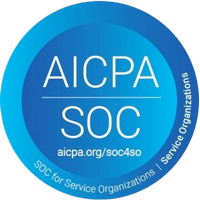Healthcare background checks are one of the most important parts of the hiring process. A successful background check will help you know with certainty that a candidate can do their job safely and well. Here’s what to know about background checks, their limitations, and how to conduct them seamlessly.
The Importance of Healthcare Background Checks
Background checks are meant to ensure that workers are safe, reliable, and qualified. In healthcare, this can be particularly high stakes, with ramifications for both quality of care and the legality of your operations. Some clinical roles can only be legally performed with the correct qualifications, and hiring the wrong people could put patients and residents at risk. A strong system for performing background checks will improve results for your patients and build a better workplace for employees.
Assuring Quality of Care for Patients and Residents
In a typical healthcare business, every clinical and non-clinical role has a part to play in your business’s outcomes. From the secretaries to care providers, everyone has an impact on patient experience.
Most obviously, you will need to make sure that your care providers are qualified and that their qualifications are up-to-date. But you will also need to ensure that all workers are prepared to be warm, organized, and responsive. Background checks can’t tell you all of this, but by verifying qualifications and references, you will at least have a better understanding of new hires’ expertise.
Building a Positive Culture for Healthcare Workers
Healthcare background checks aren’t just for the benefit of patients and residents. They are also one part of building a comfortable and safe working environment for your employees.
Two reference checks are mandatory for healthcare positions, but many companies only use these checks to verify dates of employment and job title. Reviewing a candidate’s background can help you verify that they will become positive members of the team. In worst-case scenarios, you may find that a candidate has harassed their coworkers or otherwise contributed to a toxic environment. In this scenario, it’s better to understand their history upfront so you can protect your current staff. If you have questions about culture fit, you can take this moment to ask previous employers how the candidate works with others.
Do Healthcare Workers Need a Spotless Background Check?
Just because you’re conducting a healthcare background check doesn’t mean you have to offer, or refuse to offer, a job. Some results really are mandatory—you can’t offer an advanced clinical role to an unqualified worker. But what about criminal background? Can people convicted of felonies work in clinical healthcare roles?
It really depends. Laws about employing felons in healthcare differ, especially based on the type of felony and when it occurred.
It can be difficult for people convicted of a crime to get their medical license, but even this varies widely. In Arizona, for example, new nurses can receive their license three years after their sentence is discharged, Meanwhile, in Maine, a felony could prevent a potential nurse from receiving their license for up to ten years.
State laws about working in healthcare with a felony get very granular. The best thing you can do is familiarize yourself with the nuances of the law in your state and stay aware of any legislative action that might change the rules. In general, any charge related to physical or sexual violence will disqualify a candidate, even as a misdemeanor.
Understanding What Healthcare Background Checks Cover
Some elements of healthcare background checks are mandatory, while some can be skipped at the employer’s discretion. Here’s what a typical healthcare background check might cover.
Medical License Verification
For most clinical roles, you will have to verify that candidates have the proper licenses. This is when you will confirm that medical credentials are legitimate and in good standing.
Criminal Background
The Patient Protection and Affordable Care Act requires participating states to conduct background checks for patient care workers. Whether or not a candidate can be employed with a felony on their record depends on their position, the state where they live, and the details of the conviction.
Identity Verification
Like all industries, healthcare runs identity checks. Standard ID verification ensures that candidates are who they say they are.
OIG Monitoring and Exclusion Lists
The Office of Inspector General excludes certain healthcare workers from receiving federal funding. Someone might land on an exclusion list for a variety of reasons, including a conviction of Medicaid fraud. If you hire someone on an exclusion list, you could stop your business from receiving federal funding. Therefore it’s important to make sure clinical workers are in good standing with the government.
Tips to Run Successful Healthcare Background Checks
A hassle-free healthcare background check will get you the information you need quickly and easily.
Manage Your Talent Relationships
The hiring process is inevitably nerve-wracking for candidates. You can give your candidates a better hiring experience by communicating about their application status and next steps. Set up a standard flow of email or text messages to keep candidates in the loop.
- Compose standard texts and/or emails to send to candidates when their background checks are complete.
- Communicate clearly about the next steps following a background check.
- Take advantage of Apploi’s unlimited candidate texting. We’ve seen that in 2022, applicants are over 2.5x more likely to respond to a text than an email! Try texting candidates about next steps rather than (or in addition to) sending an email.
Standardize and Automate
Make background checks easier for everyone involved by folding them into your standard process. Set up a workflow that’s the same for every application, including consistent updates for the candidate. If you use a hiring platform like Apploi, you’ll be able to automate this workflow, so more functions, like background checks, can happen without your prompting.
- If you use Apploi, set up workflow automation. You can automate lots of hiring steps: sending reminder messages, scheduling interviews, and updating application statuses.
- Save your standard candidate messaging templates in a central place so any member of your recruiting team can access them.
- Combine communication and automation tools to create more candidate touchpoints. Compose standard thank you notes to send at different moments in the candidate journey.
Better Healthcare Staffing With Apploi
Apploi is on a mission to help healthcare recruit, hire, and manage talent more successfully. We help employers control their brand and engage applicants through unlimited communication, branded career pages, instant job post distribution, and integrated background checks.
Interested in learning more about how you can recruit, hire, and onboard healthcare staff quickly? Contact us today for a free demo of our end-to-end talent management solution.





